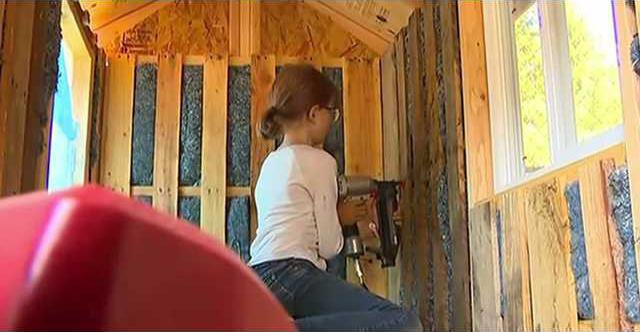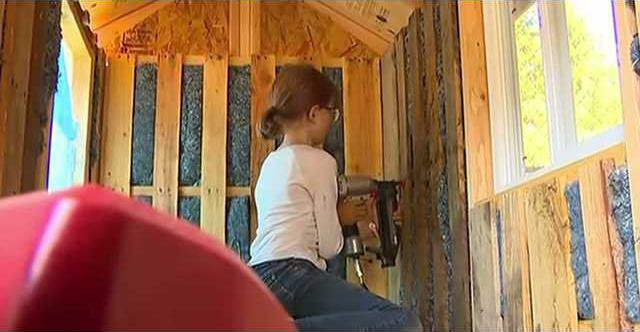One 9-year-old Washington girl is building a roof to put over the heads of the homeless in her community.
Hailey Fort is building 11 small shelters for homeless people with only the help of her mother, her grandfather and some power tools, Cameron Keady reported for The Huffington Post.
Hailey was inspired to give back to her community after she met Edward, a homeless man, while shopping with her mother. The two then returned to give Edward food, and that inspired Hailey to start a garden to give food to people in need.
"It just doesn't seem right that there are homeless people," Hailey told KING 5 reporter Eric Wilkinson. "I think everyone should have a place to live."
Even though Hailey is still finishing the first shelter, she has already committed to build as many as she can, grow 250 pounds of food and distribute coats, toiletries and feminine hygiene products.
See how this 9-year-olds positive attitude is helping people in need.
Hailey Fort is building 11 small shelters for homeless people with only the help of her mother, her grandfather and some power tools, Cameron Keady reported for The Huffington Post.
Hailey was inspired to give back to her community after she met Edward, a homeless man, while shopping with her mother. The two then returned to give Edward food, and that inspired Hailey to start a garden to give food to people in need.
"It just doesn't seem right that there are homeless people," Hailey told KING 5 reporter Eric Wilkinson. "I think everyone should have a place to live."
Even though Hailey is still finishing the first shelter, she has already committed to build as many as she can, grow 250 pounds of food and distribute coats, toiletries and feminine hygiene products.
See how this 9-year-olds positive attitude is helping people in need.








